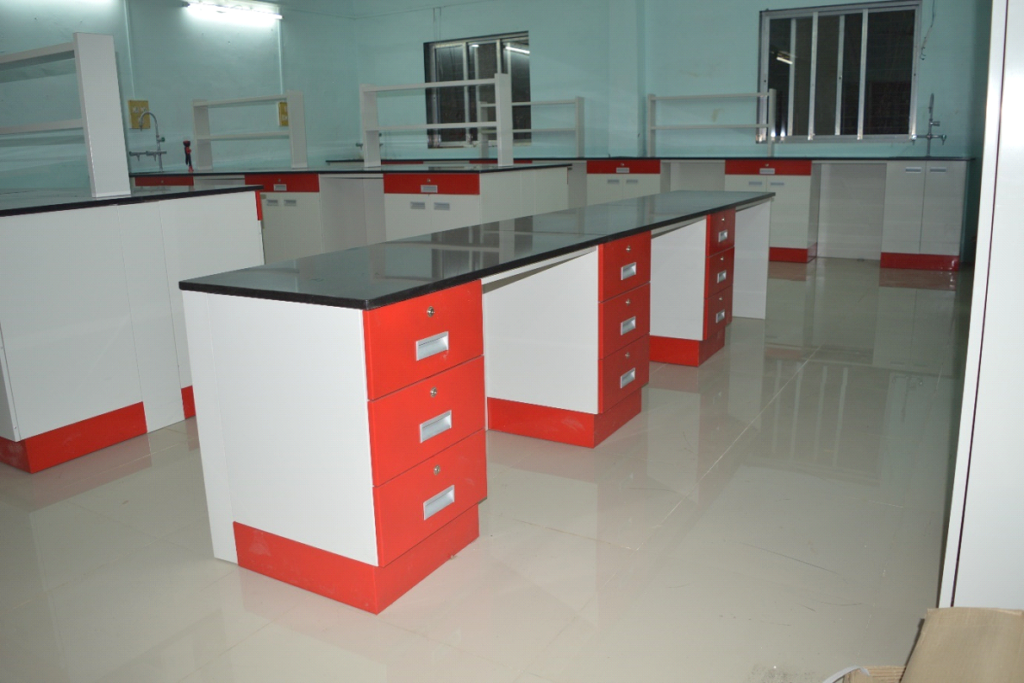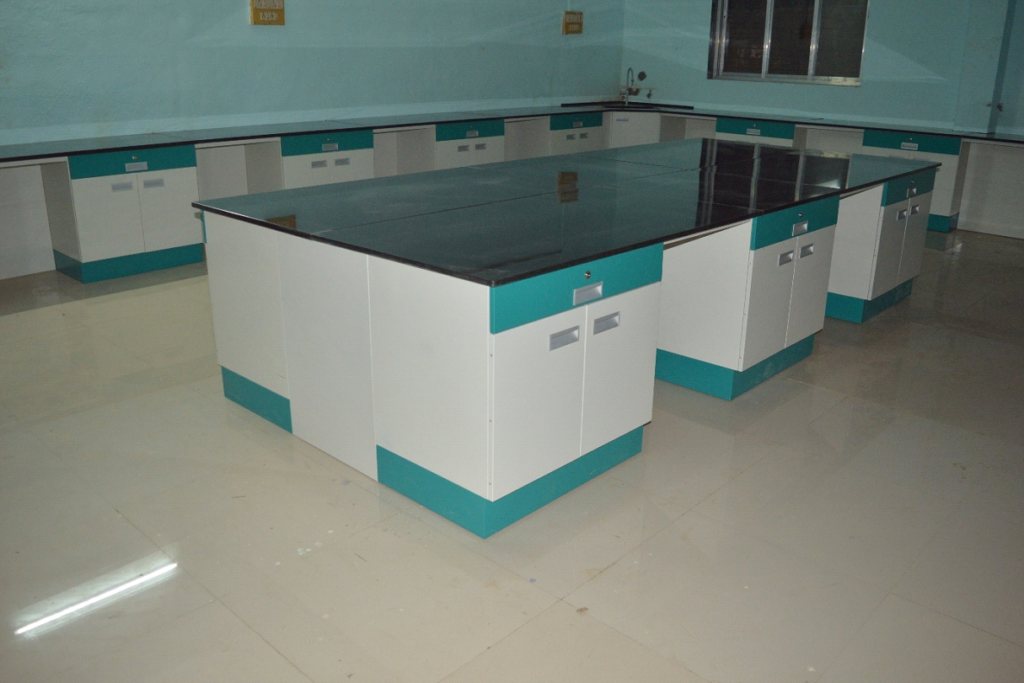Modular laboratory furniture refers to a system of furniture components that can be assembled, disassembled, and rearranged to create customized lab workstations. It offers flexibility and adaptability, allowing laboratories to adjust their layout and functionality as needs evolve.

Here are the benefits and features of modular laboratory furniture:
Flexibility and Adaptability: Modular furniture systems are designed to be highly flexible, allowing easy reconfiguration and adaptation to changing laboratory needs. Components such as work surfaces, storage units, cabinets, and shelving can be rearranged or added as required, enabling efficient use of space and accommodating evolving research or teaching requirements.
Customization: Modular furniture offers a high degree of customization. Laboratories can choose from a range of modular components and configurations to create workstations tailored to their specific needs. This includes options for workbench size, storage units, sink placement, electrical outlets, and other features, ensuring optimal functionality and efficiency.
Ease of Installation and Disassembly: Modular furniture systems are designed for easy installation and disassembly. The components can be quickly assembled using standardized connectors, and they can be dismantled and reconfigured without causing damage to the furniture or the laboratory infrastructure. This makes it convenient for laboratories that may need to relocate or reorganize their space.
Space Optimization: Modular furniture maximizes the efficient use of laboratory space. It allows for the customization of workstations to fit the available area, utilizing every square inch effectively. Modular systems can be designed to integrate storage units, equipment racks, and other features, optimizing workflow and organization within the laboratory.
Ergonomics and User Comfort: Modular furniture can be designed to prioritize ergonomic considerations, ensuring user comfort and safety. Adjustable work surfaces, adjustable-height chairs or stools, and proper equipment placement contribute to an ergonomic working environment, reducing the risk of strain or injury.
Integrated Services: Modular furniture systems can incorporate integrated services such as electrical outlets, gas connections, plumbing fixtures, and ventilation systems. This eliminates the need for additional infrastructure modifications and allows for efficient and safe connectivity of laboratory equipment and instruments.
Aesthetics: Modular laboratory furniture is available in various designs and finishes, allowing laboratories to create a visually appealing and professional workspace. The aesthetic aspect can contribute to a positive working environment and enhance the overall appearance of the laboratory.
Easy Maintenance and Upgrades: Modular furniture is typically designed for easy maintenance. Components can be easily cleaned, repaired, or replaced as needed, reducing downtime and minimizing disruptions to laboratory operations. Additionally, modular systems can be easily upgraded or expanded to accommodate new equipment or changing research needs.
Cost-Effectiveness: Modular furniture systems offer cost advantages compared to traditional fixed furniture. They can be more affordable initially, and the flexibility to reconfigure or expand the furniture reduces the need for complete replacements when laboratory needs change. This makes modular furniture a cost-effective long-term investment.
Sustainability: Many modular furniture systems are designed with sustainability in mind. They often incorporate environmentally friendly materials and manufacturing processes, allowing laboratories to align with sustainability goals and reduce their environmental footprint.
Modular laboratory furniture provides laboratories with a versatile and adaptable solution that can be tailored to their specific needs. The flexibility, customization options, space optimization, and other features contribute to a functional, efficient, and ergonomic laboratory environment.






